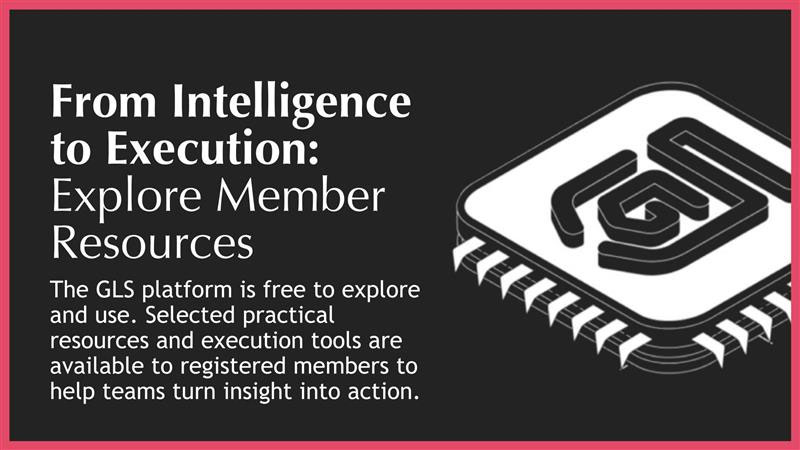The GLS Legal Operations Centre
Intelligence, resources and execution support
Transformation Tube Map
Knowledge Centre
Legal Dept.
Resources
Managed Legal Services
Members
Resources
Legal Ops
Community
Back
Process Audit
What Is It
The Process Audit Station is the structured diagnostic phase that evaluates the current state of legal workflows - typically contracting or other repeatable legal functions. It’s the first step in understanding what the legal department is doing, how well it’s doing it, and where managed legal services (MLS) can deliver immediate and long-term value.
This station is not about critique - it’s about clarity. A well-executed audit allows the MLS provider to seamlessly take over business-as-usual (BAU) operations without disruption. It ensures continuity while laying the groundwork for future improvements. The audit captures the “as-is” state, which becomes the baseline for transformation.
At GLS, we go further. Our audits benchmark historic performance, identify bottlenecks, and surface hidden costs. We use this data to design a glide path to “best, faster, cheaper” outcomes - the hallmark of a successful MLS deployment. Without this step, the MLS provider is flying blind.
The Process Audit is also a trust-building exercise. It shows the legal team that transformation doesn’t mean chaos - it means clarity, continuity, and control.
Scope
The scope of the Process Audit typically includes:
◼️Mapping current legal workflows and process steps
◼️Identifying inefficiencies, delays, and bottlenecks
◼️Reviewing document templates, approval chains, and escalation paths
◼️Benchmarking historic performance metrics (e.g., turnaround time, cost per matter)
◼️Assessing technology usage and integration points
◼️Evaluating legal team roles and resource allocation
◼️Identifying compliance and risk management gaps
◼️Recommending areas for immediate MLS support and long-term improvement
Resource Status
The Process Audit station is considered a Specialist resource within the GLS Legal Operations model.
A Foundational Resource: Is responsible for determining the overall performance capabilities of a “critical” legal function. If it is not optimised, the function can never be optimised.
A Repeater Resource: Supports the performance of multiple "critical" legal functions and as such represents a "ripple effect" productivity intervention point.
A Specialist Resource: Is responsible for driving the performance of a very specific part of an individual legal function. Its productivity contribution is limited to that single legal function.
Best Practice Features
The best practice features of the Process Audit Station are as follows:
◼️Comprehensive workflow mapping that captures all relevant process steps
◼️Data-driven performance benchmarking using historic metrics
◼️Stakeholder interviews to understand pain points and expectations
◼️Technology assessment to identify automation opportunities
◼️Risk and compliance review to surface exposure areas
◼️Clear documentation of BAU operations for seamless MLS handover
◼️Actionable insights that inform solution design and implementation
◼️Repeatable audit methodology for ongoing process improvement
Business Value
The Process Audit Station delivers the following value to the Business:
◼️Faster implementation of managed services through clear process documentation
◼️Reduced operational risk by identifying compliance gaps
◼️Improved cost efficiency through targeted process improvements
◼️Accelerated deal execution by removing workflow bottlenecks
◼️Enhanced business confidence in legal transformation initiatives
Legal Department Value
The audit gives the legal team a mirror - a clear, objective view of how they operate. It validates what’s working, highlights what’s not, and provides a roadmap for improvement. It also ensures that the MLS provider can take over without disruption, preserving team credibility and stakeholder trust.
Who Needs It
The Process Audit Station is essential for:
◼️Legal departments preparing for managed legal services deployment
◼️Teams seeking to improve contracting or legal workflow efficiency
◼️Legal operations professionals designing transformation programs
◼️GCs and Heads of Legal needing performance diagnostics
Productivity Consequences
A legal team operating without a Process Audit will face a wide range of inefficiencies including:
◼️Disrupted MLS implementation due to unclear workflows
◼️Continued process bottlenecks and delays
◼️Inability to benchmark or measure performance improvements
◼️Higher legal spend due to inefficiencies and duplication
◼️Reduced stakeholder confidence in legal transformation efforts
Tech Implication
The Process Audit has a strong tech profile. It identifies where technology is being underutilized, where automation can be introduced, and how existing platforms can be better integrated. It also informs the tech stack required for MLS deployment - ensuring that tools support, rather than hinder, transformation.
What Next?
Full details of our core managed legal services offering can be found here in our detailed GLS Managed Legal Service Overview offering overview.
If you would like us to scope the potential for your legal team to implement a managed legal service for contracting support - please feel free to utilise our online managed legal service diagnostic tool.
By answering some basic needs criteria we can give you a view of whether such a solution might make sense.
Feel free to explore each of the critical resource enablers that are comprised of an optimally performing Managed Legal Services Line by clicking on the interactive map at the top of the page.
Visit each Station for in-depth analysis of what it takes to make this in-house function really perform. Or you can go back to the overall GLS Legal Transformation Tube Map.
In most cases, the GLS Legal Operations Centre contains everything you need to effectively optimise your Managed Legal Services Line yourself – or feel free to reach out to us – and we can do it for/with you.
Feel free to contact GLS to book a consult to discuss your Managed Legal Services Line optimisation needs right here.

The GLS Legal Operations Centre
Register to access your complimentary Day 1 Resource Stack packed with legal team performance resources.

GLS Ultimate Guide To Legal Operations
Download this and read it thoroughly and regularly. It is a wonderful transformation companion.

GLS Legal Transformation Boot Camp
If you would like discuss your legal transformation needs, please book a 30 minute free consultation with us.

GLS Legal Transformation Boot Camp
Our hugely successful, 10-week long, email-based boot camp on how to effectively transform your legal team.




